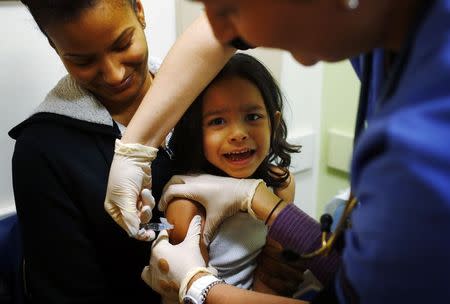Poll finds gaping chasm in views between U.S. public, scientists
By Will Dunham WASHINGTON (Reuters) - American scientists and the general public hold vastly different views on key scientific issues including the role of people in causing climate change, the safety of genetically modified food, and evolution, a poll released on Thursday showed. Eighty-seven percent of scientists questioned by the Pew Research Center said human activity was the main cause of global climate change, compared with 50 percent of the public. Twenty-five percent of the public said there was no solid evidence the climate was warming, up from 11 percent in a similar 2009 survey. The issue has become increasing divisive, with some leading conservatives expressing doubt that human activity like the burning of fossils fuels that release greenhouse gases is driving a global warming trend. Scientists from two U.S. government agencies said this month that 2014 was the hottest year on record and blamed human activities for Earth's warming trend. There was an even bigger chasm over genetically modified foods, with 88 percent of the scientists saying they were safe to eat, compared with 37 percent of the public. On evolution, 98 percent of scientists said humans had evolved over time, compared with 65 percent of the public. The findings were based on responses last August from 2,002 U.S. adults nationwide, with a margin of error of 3.1 percentage points. The results were compared with answers last September and October from 3,748 scientists who are members of the American Association for the Advancement of Science, a leading scientific organization that also publishes the journal Science. The research was conducted in collaboration with the association. Alan Leshner, the association's chief executive, told reporters that "science is being trumped" by factors including political views on climate change, religious beliefs on evolution and lack of scientific understanding about genetically modified foods. "Speaking up for the importance of science to society is our only hope, and scientists must not shy away from engaging with the public, even on the most polarizing science-based topics," Leshner wrote in an editorial in Science. Other areas with opinion gaps included: - whether childhood vaccines such as those for measles, mumps and rubella should be mandatory (86 percent of the scientists said yes, compared with 68 percent of the public). - using animals in biomedical research (89 percent of scientists favored it, compared with 47 percent of the public); - the safety of eating foods grown with pesticides (68 percent of scientists said it was safe, compared with 28 percent of the public). (Reporting by Will Dunham; Editing by Peter Cooney)


